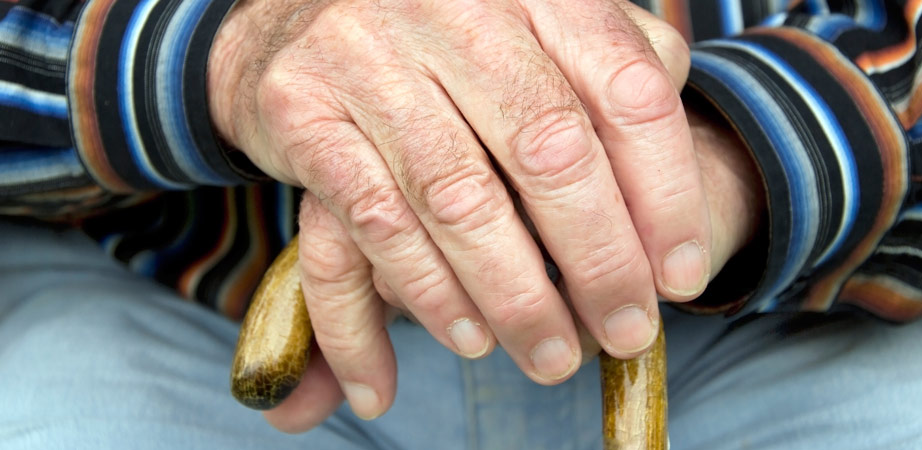My dad was a strong robust committed community leader and Christian. But as he aged, dad was diagnosed with Alzheimer’s. His behavior worsened, and we had to put him in an elder care facility. It wasn’t what we expected though, and ended up being an “elder-care-less” facility. Did we do the right thing?
My mother-in-law, displayed a servants heart all her life, helping my wife and me with the kids, helping my brother-in-law with his daughter, and actually led my wife to Christ. But eventually, she became so sick and emotionally distraught that we had to place her in a senior living facility. In the transition, we struggled with emotions and feelings of guilt. Was that the right thing to do?
Elder care is an issue that has concerned mankind for ages. Many centuries ago, the Jewish philosopher Philo wrestled with this issue, and said, “when old storks become unable to fly, they stay in their nests and are fed by their children, who go to endless exertions to provide their food.” Another ancient thinker, Aristotle, came to the conclusion that, “a man must himself starve before he would see his parents starve.”
Clearly we shouldn’t let our elderly parents starve, but the issues can get complicated.
Is caring for the aged and aging a burden or a blessing?
Unfortunately, lots of us will be facing this situation – if we are not already.
Did you know there are eight times more Americans over 65 than at the turn of this century – their proportion to the rest of the population has almost tripled! This aging of society has raised a bunch of deep questions:
• What are our responsibilities toward aging family members?
• What can we reasonably expect in our own old age?
• How can people and institutions that serve the elderly preserve values such as autonomy, self-respect, and dignity?
What is the right Christian thing to do.?
One pastor said he believes the church should support our elders – another said the state (i.e. our taxes) should support our elders – which is right?
Also, to whom do we have the responsibility? Do we only have to care for our parents if we have a good relationship with them? In other words, is it “elder care“ for some, and “elder I don’t care“ for others?
In case we are unsure what God thinks about this, Jesus himself rebuked the Pharisees for trying to escape the burden of caring for their aging parents in Mark 7:10-13.
Let’s look at a few other Bible passages dealing with caring for our parents.
Exodus 20:12 says: “Honor your father and mother so that you may live long in the land the Lord your God is giving you.”
Leviticus 19:32 says: “Stand up in the presence of the elderly and show respect for the aged.”
Proverbs 30:17 says: “The eye that mocks a father and scorns obedience to a mother will be pecked out by the ravens of the valley, will be eaten by the vultures.”
In Matthew 25:31-46, Jesus said that helping the needy was the same as helping him. Should we do any less for our parents than for anyone else who might be needy?
1 Timothy 5:4, Paul says to Timothy: “If a widow has children or grandchildren, these should learn first of all to put their religion into practice by caring for their own family and so repaying their parents and grandparents, for this is pleasing to God.”
The Bible makes it clear that we should care for our parents, but what exactly does that mean? What about some of these real-life concerns I’ve heard recently: see if you relate to any of them:
“I’d have to live in a crowded house and drive a smaller car if I took care of mom and dad.”
“Mom is getting in the way of our marriage, and my wife and I have no privacy.”
“Dad isn’t a believer, and he might adversely influence my kids if he moves in.”
“My mom is too demanding and cantankerous.”
“My wife and my mom just don’t get along.”
“I can’t differentiate moms real needs from what she complains about.”
“Supporting mom and dad will put us into debt.”
“Taking care of my parents is causing my health to fail.”
So, here’s the question: are these concerns legitimate? Are Christians demonstrating Christian love in the matter of elder care?
Okay, let me come clean about this. These are difficult questions and difficult decisions but here’s the good news, we can deal with these issues by practicing the Four Ps:
- Pause
- Ponder
- Pray
- Prepare
In order to pause and ponder, ask yourself these questions: Are we willing to sacrifice? Isn’t elder care an opportunity to display Christian love? What do you expect your wife or husband or children to do if and when you are debilitated in your old age?
Next, pray and prepare. Pray sincerely for God’s wisdom and His will, not our own, and prepare for the inevitable. Parents and other family members are aging. You are aging. Take steps and make decisions about these things in advance.
For as James 4:14 says: “Why, you do not even know what will happen tomorrow. What is your life? You are a mist that appears for a little while and then vanishes.”
You can listen to this post via podcast here.
Related Articles


